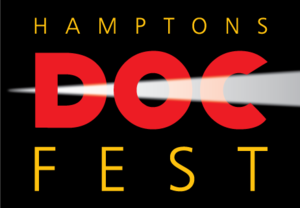
Gala Honors Alex Gibney
With a 2016 Career Achievement Award
Cocktail buffet reception
Career Achievement Award to Alex Gibney
Documentary feature: Zero Days
Conversation with Alex Gibney & Ron Simon, Paley Center for Media

Additional Info
Zero Days
DIRECTOR: Alex Gibney
PRODUCERS: Alex Gibney, Marc Shmuger
EDITOR: Andy Grieve
CINEMATOGRAPHERS: Antonio
Zero Days is a documentary thriller about the world of cyberwar. For the first time, the film tells the complete story of Stuxnet, a piece of self-replicating computer malware (known as a “worm” for its ability to burrow from computer to computer on its own) that the US and Israel unleashed to destroy a key part of an Iranian nuclear facility, and which ultimately spread beyond its intended target.
The film is the most comprehensive accounting to date of how a clandestine mission hatched by two allies with clashing agendas opened forever the Pandora’s box of cyberwar. Beyond the technical aspects of the story, the film reveals a web of intrigue involving the CIA, the US military’s new cyber command, Israel’s Mossad and operations that include both espionage and covert assassinations, but also a new generation of cyberweapons whose destructive power is matched only by nuclear war.
What adds to the impact of the film is the secrecy it explores that surrounds Stuxnet and cyberweaponry in general. Says Gibney, “This is really beginning to piss me off,” after official after official claims ignorance of Stuxnet or says he can’t say anything about it even if he did. This wall of secrecy makes it impossible for a serious debate to take place among the public, Congress and the press about this dangerous technology. According to a review at www.rogerebert.com, Zero Days is, “Easily the most important film anyone has released this year, it is a documentary that deserves to be seen by every sentient citizen of this country—and indeed the world.”
ABOUT ALEX GIBNEY
Alex Gibney has been called “the most important documentarian of our time” by Esquire magazine and “one of America’s most successful and prolific documentary filmmakers” by The New York Times. He has directed 28 documentaries in the last 11 years, while producing many more. Gibney’s signature cinematic style lends itself to gripping and deeply insightful films which have garnered top awards, including an Academy Award for Best Documentary for Taxi to the Dark Side, an exposé of the Bush administration’s worldwide policy of detention and torture. Add to that five Emmys, several Peabody Awards, a Grammy, the DuPont-Columbia Award, The Writers Guild Award, and the Independent Spirit Award and you have an idea of how intensely he has worked to create a vital and impactful documentary genre.
Despite all of this success, Gibney struggled to find his calling. He was 50 before he made his breakthrough film, Enron: The Smartest Guys in the Room, about corruption and insider trading at Enron Corporation. Enron marked the start of Gibney’s cinematic rout of institutions and people known for scamming—and harming—the public. He has been a provocative and relentless investigator of crime and criminality and the dark side of all manner of worlds of power: in sports (The Armstrong Lie); politics (Client 9 and Casino Jack and the United States of Money); the economy (Enron and Park Avenue: Money, Power and the American Dream); religion (Going Clear: Scientology and the Prison of Belief and Mea Maxima Culpa); and the military (We Steal Secrets: The Story of Wikileaks and his latest, Zero Days, a harrowing expose on cyberwarfare), to name just a few.
Gibney’s films tackle complex issues, but in a highly cinematic way - one which makes them accessible to the public. As Gibney put it in a recent article in Vulture Magazine, “(I’m) a filmmaker with journalistic baggage rather than a journalist…I think of (my films) more like nonfiction books. They have a great sense of journalistic inquiry but they’re carefully considered aesthetic achievements which mix both the personal with the breadth of the story you’re telling…When you read a really good nonfiction book it should read like a thriller: the author has a voice that you appreciate...rather than laying it out (chronologically)… you have to say, ‘We’ve gathered our material, done our research, dug out the story, now how do we tell it?’ ”
And tell it he does, and not only in the theatrical realm. Gibney’s Jigsaw Productions expanded into television series with its first project, Death Row Stories, Executive Produced by Gibney and Robert Redford for CNN, which explores the US capital punishment system. This was followed by Edge of Eighteen, The New Yorker Presents, Cooked (based on Michael Pollan’s book), and Parched, a four part investigative series about water crisis, which will air in 171 countries on Nat Geo. Additional projects from Gibney’s extraordinary career include Finding Fela, My Trip to Al Qaeda, The History of the Eagles, Mr. Dynamite: The Rise of James Brown, Magic Trip: Ken Kesey’s Search for A Kool Place, Gonzo: The Life and Work of Dr. Hunter S. Thompson, and No End in Sight.
In his spare time, Gibney is getting ready to direct his first feature, The Action, for Lionsgate, which is based on Betty Medsger’s The Burglary: The Discovery of J. Edgar Hoover’s Secret FBI. According to a review by the San Francisco Chronicle, the story is “a cinematic account…which makes a powerful argument for moral acts of whistle-blowing in the absence of government action.” And as David Oshinsky of The New York Times Book Review writes, The Burglary is “impeccably researched, elegantly presented, engaging…” It all sounds right up Gibney’s alley.
Ron Simon has been a curator at The Paley Center for Media since the early 1980s. He is also an adjunct associate professor at Columbia University, New York University, and Hunter College, where he teaches courses on the history of media.
